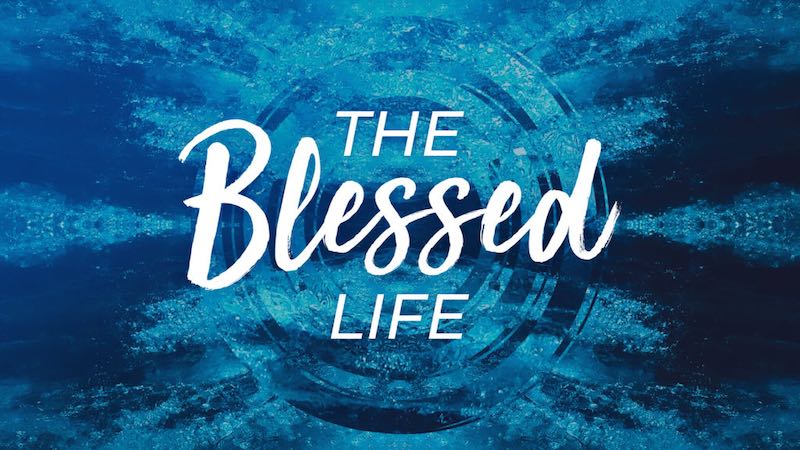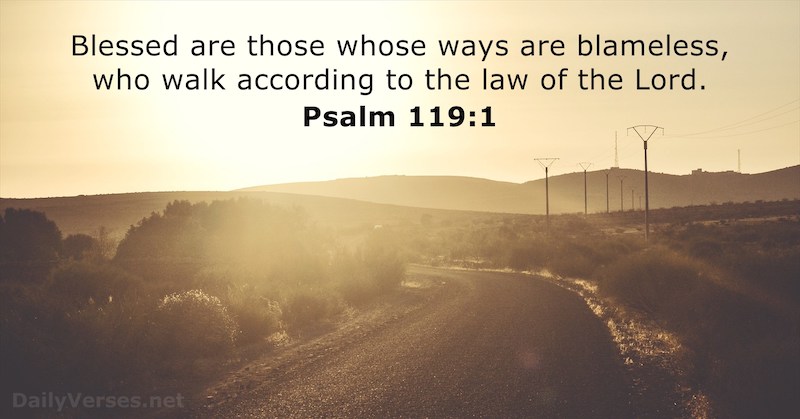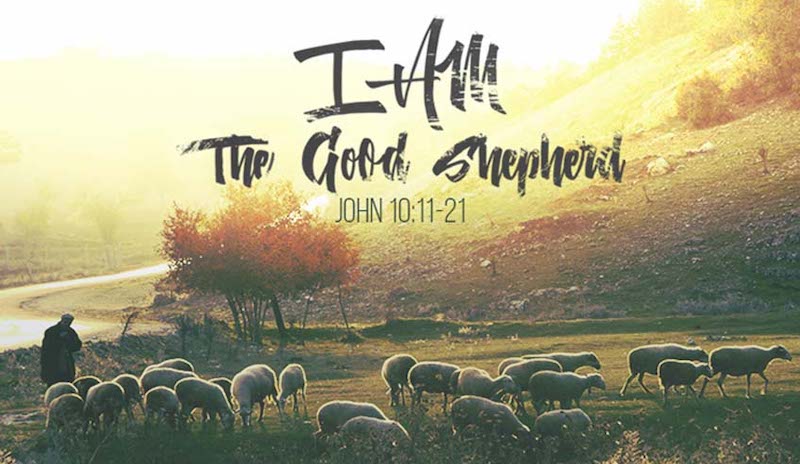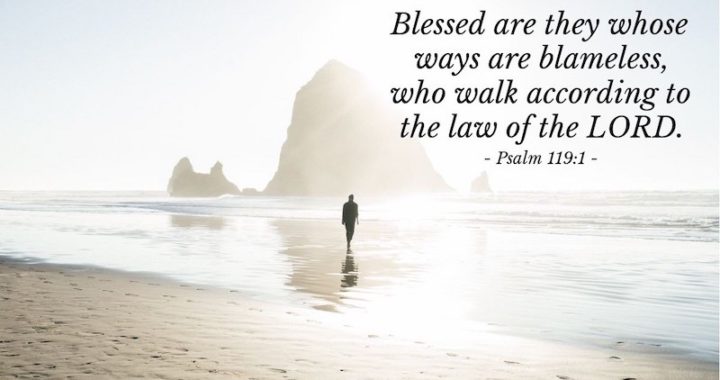When did you start walking with God? When did you first believe in God and begin your journey of faith? When did you have a true encounter with God and come to believe that Yeshua is the Messiah, the Son of God?
For some, the initial starting point of faith in God may have developed through time with no one particular event being the turning point, however, for many people there has been a unique moment in history when everything changed and a walk with God began. This was true in the life of Jacob as we read in this week’s Torah Portion.
Jacob’s Journey
As we begin reading this week’s Torah Portion, Jacob begins a journey initiated by his parents. Isaac and Rebekah made this decision to send Jacob to a far away land for two specific reasons. The first reason was that Rebekah feared for her son Jacob’s life as his twin, Esau, had vowed to kill him. Rebekah wanted to get her son far away from the dangerous environment that was brewing in the home after Jacob stole his brother’s blessing from their father. The second reason was that neither Isaac nor Rebekah wanted to see Jacob marry one of the Canaanite girls in the community and therefore they sent Jacob to Rebekah’s hometown up north to choose one of the girls from her brother’s family.
Jacob listened to his parents’ wishes and in obedience left his home in Beersheba and made the long journey north to Rebekah’s relatives. It is at the beginning of his journey that Jacob experienced his first unique encounter with God as recorded in the Scriptures:
Then Jacob departed from Beersheba and went toward Haran. He came to a certain place and spent the night there, because the sun had set; and he took one of the stones of the place and put it under his head, and lay down in that place. He had a dream, and behold, a ladder was set on the earth with its top reaching to heaven; and behold, the angels of God were ascending and descending on it. And behold, the LORD stood above it and said, “I am the LORD, the God of your father Abraham and the God of Isaac; the land on which you lie, I will give it to you and to your descendants. Your descendants will also be like the dust of the earth, and you will spread out to the west and to the east and to the north and to the south; and in you and in your descendants shall all the families of the earth be blessed. Behold, I am with you and will keep you wherever you go, and will bring you back to this land; for I will not leave you until I have done what I have promised you.” Then Jacob awoke from his sleep and said, “Surely the LORD is in this place, and I did not know it.” He was afraid and said, “How awesome is this place! This is none other than the house of God, and this is the gate of heaven.” – Gen. 28:10-17
God came to Jacob in a dream and confirmed to him all of the promises that He had given to Abraham and Isaac regarding the blessing, the land, and his descendants. God also promised to be with Jacob on his journey and to bring him back safely to the Land of Promise.
Jacob’s “God Moment”
When Jacob awoke, he knew that God had communicated to him and he recognized that everything changed in his life from that very moment. Jacob had acted shrewdly in the past in order to take from Esau both the birthright and the blessing of the firstborn. God had now come to Jacob at that place and confirmed all of His promises to him. Jacob responded to this life-changing dream by making a vow to God:
So Jacob rose early in the morning, and took the stone that he had put under his head and set it up as a pillar and poured oil on its top. He called the name of that place Bethel; however, previously the name of the city had been Luz. Then Jacob made a vow, saying, “If God will be with me and will keep me on this journey that I take, and will give me food to eat and garments to wear, and I return to my father’s house in safety, then the LORD will be my God. This stone, which I have set up as a pillar, will be God’s house, and of all that You give me I will surely give a tenth to You.” – Gen. 28:18-22
Every testimony of how God meets with individuals and speaks to the heart is unique. The manner in which each one of us responds to God’s word and His call is also unique. Jacob understood that this dream was from the LORD and he vowed to serve this God who came to him if this God would prove Himself by keeping His promise.
Jacob was seventy-one years old when God came to him in a dream at Luz, which Jacob called Bethel (house of God), and this event became the spiritual starting point of Jacob’s journey with God. One would think that after such a dramatic encounter with God combined with these powerful promises from Almighty God, that one’s life would be one blessing after another.

The Blessed Life
In fact, there are many Scriptures in the Bible that speak of the blessings that follow those who walk with God and keep His Word. An excellent example of this is found in the book of Psalms:
How blessed are those whose way is blameless, who walk in the law of the LORD. – Psalm 119:1
The Hebrew word for “blameless” in the above verse is תמים – Tamim and has the meaning of something that is whole, complete, and perfect. This is the same word used to describe the spiritual walk of Noah (Gen. 6:9) and also the word God used when he commanded Abraham to “…walk before Me, and be blameless.” (Gen. 17:1) Those who walk with God in a whole and blameless manner will be blessed.
We also read in the second part of Psalm 119:1 that those whose lives are characterized as blameless, “…who walk in the law of the LORD.” In Hebrew this phrase reads as follows: ההולכים בתורת יהוה – HaCholhim Be’Torat Adonai, and is literally translated as “…who walk in the Torah of the LORD.” The Hebrew word Torah means instruction or teaching and has also come to mean the first five books of the Bible, the Torah, as these books encapsulate the instructions or “Law” of the LORD to the people of Israel. It is important to understand that the most general use of this word torah simply means teaching and instruction. When the Bible speaks of תורת יהוה – Torat Adonai, it includes all of God’s Word and instructions to His people.
Therefore, in keeping with Psalm 119:1, a person who leads a blameless life and walks according to God’s teaching will have a blessed life. This is the expectation and it is true, however, some want to interpret this as a life that is free from all harm, trials, and pain. Is this what God has promised us? Is the outcome of living a blameless life and following God’s Word a guarantee of a carefree life to the exclusion of trials and pain? As we follow Jacob’s life, we see almost the opposite to be true.
Jacob arrived in Paddan Aram and quickly fell in love with Rachel. After only one month of visiting his relatives, Jacob agreed to work for his uncle Laban for seven years in order to gain Rachel’s hand in marriage and Laban agreed. The first seven years of Jacob’s walk with God must have seemed like a spiritual honeymoon as everything appeared to be falling into place: he had a good job, he was preparing to marry the girl of his dreams, and the God of heaven and earth was directing his life. He was experiencing a blessed life!
Was Jacob’s Life Blessed?
After the initial seven years of Jacob’s spiritual journey with God, Jacob encountered one trial in life after another. It began on Jacob’s wedding night when Laban tricked Jacob and had him marry Leah, his older daughter, before giving Rachel to him (Gen. 29:21-30). Jacob served Laban an additional seven years for both of his wives. There was a continual struggle between Jacob’s two wives and a competition for the affection of Jacob (Gen. 30).
Jacob later fled from Laban with his four wives and eleven children after serving Laban for twenty years in order to return to the Promised Land. Laban responded by chasing him down and confronting Jacob for fleeing (Gen. 31). After Jacob arrived back in the Land of Promise, he faced continual trials in life including the loss of his wife Rachel (Gen. 35:16-20) and the staged killing of his son Joseph (Gen. 37). Is this the blessed life of one who strives to live a blameless life and walks according to God’s instructions?

The years of Jacob’s life were filled with constant struggle and trials. Towards the end of his life when he learned that Joseph was still living, Jacob moved his family down to Egypt to be with Joseph and to survive the remaining years of the famine. It was at this time that Joseph brought his father to Pharaoh and introduced him to the king of Egypt. Pharaoh questioned Jacob about his life and the conversation went as follows:
Pharaoh said to Jacob, “How many years have you lived?” So Jacob said to Pharaoh, “The years of my sojourning are one hundred and thirty; few and unpleasant have been the years of my life, nor have they attained the years that my fathers lived during the days of their sojourning.” – Gen. 47:8-9
Jacob told Pharaoh that he was 130 years old at that time and he described his life in a not so “blessed” manner.
We read in the text above that Jacob characterized his life in the following words: “…few and unpleasant have been the years of my life,…” In Hebrew this phrase reads as follows: מעט ורעים היו ימי שני חיי – Me’at VeRa’im Ha’yu Ye’me She’ne Chai’yai being literally translated as “few and evil have been the days of the years of my life.” The English word “unpleasant” is literally the Hebrew word רע – Rah and simply means evil or bad. Jacob did not mince words with Pharaoh but spoke plainly to him and explained that the days of the years of his life have been difficult. Jacob recalled and remembered each day that passed when he labored for Laban and was continually deceived, when he mourned the loss of his wife Rachel, and when he grieved the loss of his son Joseph, his beloved son. It had been a long journey up until this time.
Jacob’s walk with God had begun 59 years before that day when he stood before Pharaoh. Out of those 59 years, 52 years of Jacob’s life had been filled with many trials and tribulations. Jacob had endured those 52 years but it was not easy and he experienced significant highs and lows along the journey of his spiritual walk with God.
How would you describe your life since you started walking with God? Have you experienced any unexpected trials and disappointments along your spiritual journey? Sometimes we question where God is in our pain and disappointment. At times we question if we really had that experience with God so many years ago. Did we really hear His voice? Did God really direct me to this place? Did God really lead me to marry this person? Is God still there? Does He still see me and care about my life? If so, where are you God?
The Reality of A Blessed Life
I believe Jacob asked some of these same questions. Jacob endured many years of pain and uncertainty during his spiritual journey in this life but we also know that God met him along that journey and never abandoned him. In the remaining days of Jacob’s life before he died, he summarized his life to his son Joseph in the following manner:
Then Jacob said to Joseph, “God Almighty appeared to me at Luz in the land of Canaan and blessed me, and He said to me, ‘Behold, I will make you fruitful and numerous, and I will make you a company of peoples, and will give this land to your descendants after you for an everlasting possession.’ Now your two sons, who were born to you in the land of Egypt before I came to you in Egypt, are mine; Ephraim and Manasseh shall be mine, as Reuben and Simeon are. But your offspring that have been born after them shall be yours; they shall be called by the names of their brothers in their inheritance. Now as for me, when I came from Paddan, Rachel died, to my sorrow, in the land of Canaan on the journey, when there was still some distance to go to Ephrath; and I buried her there on the way to Ephrath (that is, Bethlehem).” – Gen. 48:3-7
In sharing a few highlights and lowlights from his life, Jacob began with his first encounter with God and reminded Jospeh of God’s promise for his descendants. Joseph also spoke of the loss of his beloved wife Rachel.
Trusting The Good Shepherd
At the end of Jacob’s life, he recalled that within his amazing spiritual journey there was loss, but this loss did not forfeit God’s plans and His promises. Jacob believed that God would fulfill every word He had spoken to him and Jacob proved this in the words that he spoke as he blessed Joseph’s sons:
But Israel stretched out his right hand and laid it on the head of Ephraim, who was the younger, and his left hand on Manasseh’s head, crossing his hands, although Manasseh was the firstborn. He blessed Joseph, and said, “The God before whom my fathers Abraham and Isaac walked, the God who has been my shepherd all my life to this day, the angel who has redeemed me from all evil, bless the lads; and may my name live on in them, and the names of my fathers Abraham and Isaac; and may they grow into a multitude in the midst of the earth.” – Gen. 48:14-16
Jacob passed on a spiritual blessing to Joseph by blessing his sons. In this short blessing Jacob not only acknowledged the God of his fathers, but stated that this same God was his own Shepherd who continually shepherded him as His little lamb. Jacob understood that just as the flock of a shepherd faces many dangers and difficulties in life, so did he. And just as a shepherd continually protects and provides for his flock, God was a good shepherd to him.

Jacob also emphasized in the blessing above how his life had been redeemed from “all evil” by the angel. The phrase “from all evil” in Hebrew is מכול רע – Mi’kol Ra. This word for evil is the same word that Jacob used when he stood before Pharaoh and spoken of the evil of the days of his life. Seventeen years had passed since Jacob entered Egypt. As Jacob reflected on all of his life, he clearly recognized that although he had faced many hardships along the journey, God whose voice he had heard 76 years earlier at Luz (Bethel) had been faithful and had redeemed him from all evil by His angel.
The Way of the Blameless
Jacob lived to be 147 years old (Gen. 47:28). As we have reviewed his life and recounted some of the highlights and lowlights we can see how his life was truly blessed by God with all of the difficult days mixed in. The first 71 years of Jacob’s life before he began his spiritual journey may appear more blessed and carefree according to this world’s standards compared to the later 76 years of his life, however, by recounting his days in full we see how God had an ultimate plan that He was orchestrating for his good, the good of his family, and the good of the entire world. The totality of events in Jacob’s life go well beyond Jacob’s years on earth. The blessing of God in our lives is not only to benefit us but also our descendants and His plan for this world which transcends far beyond our comprehension.
This spiritual journey that we take with the living God of the Bible on this earth has a beginning and an end. We do not always understand the circumstances and events that He allows into our lives but we need to continually look to Him, follow His leading, and trust His Divine sovereignty. May you finish well and like Jacob testify to how the Good Shepherd has watched over your days and redeemed your life from all evil.
Shabbat Shalom!
If you enjoyed reading this article, share it today with friends! We also invite you to sign up for our weekly Torah Portion commentary on the sidebar to the right.
Help keep our weekly commentaries free and available to all. Click here to donate today:
*All Scripture take from NASB Copyright © 1960, 1962, 1963, 1968, 1971, 1972, 1973, 1975, 1977, 1995 by The Lockman Foundation
Torah Portion: Gen. 28:10-32:3
Haftara: Hoshea 12:12 – Hoshea 14:9
Return to Torah Portion Homepage
Copyright Jewels of Judaism. All rights reserved 2019



This specific study of the life of Jacob, is such an exemple of faith, perseverance and enduring to our earthly-godly journey of each day. The Lord is glorified when His children keep their faith while going through difficult circumstances, as it is also a powerful testimony to many others.
Thank you, Daniel. Praying.
Amen, Thank you Yazmin
Dear Daniel, thank you once again for your teaching. Please be assured of my prayers for your mum as well as for you and the family. It’s not easy in times like this but our awesome Lord Yeshua will be your comfort and joy. Shabbat Shalom from Bundaberg, Australia ❤🇦🇺🇮🇱🙏🙏🙏 Trish
Thank you Trish!